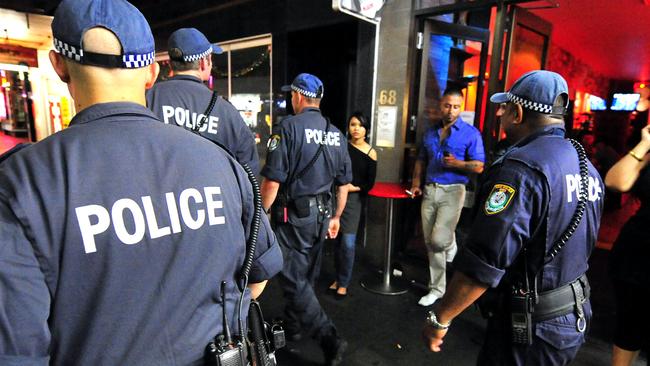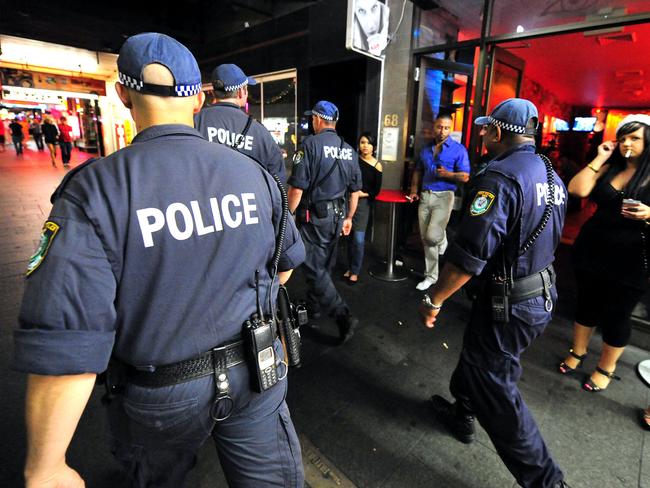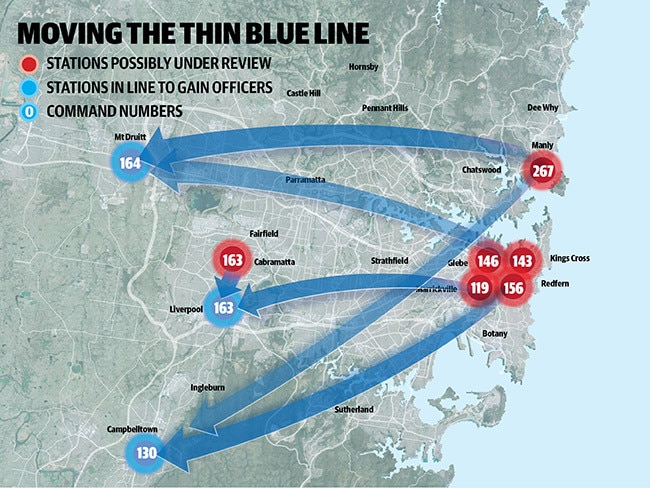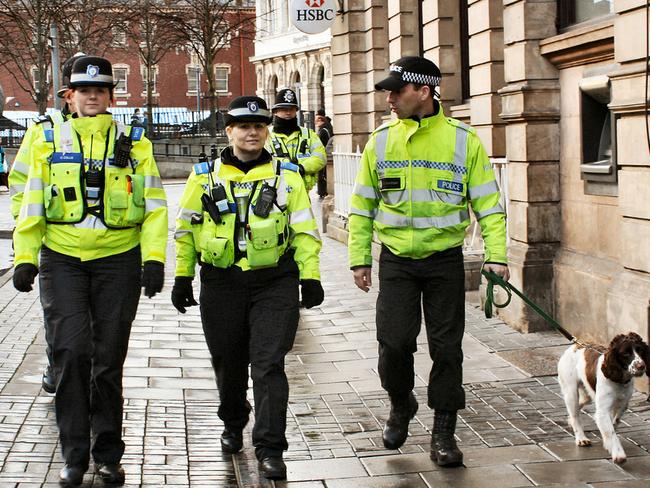NSW Police set for a new blueprint: Cops brace for biggest procedural shake-up ever
A CONSULTANCY firm that recommended slashing 2500 UK police jobs will be front and centre in the biggest audit of NSW Police in the force’s history.

NSW
Don't miss out on the headlines from NSW. Followed categories will be added to My News.
- Quakers Hill shooting: Man with knife shot at police station
- Cop shops under siege by extreme enemies
- Bikie gangs: Police crackdown costs gangs millions, drives them underground
AN overseas consultancy firm that recommended slashing 2500 police jobs in the UK will be front and centre in the biggest audit of NSW Police resources in the force’s history.
The widespread review is likely to result in an extensive redeployment of police officers, moving them from suburbs where crime has dropped, such as Sydney’s inner west and the northern beaches, to suburbs where crime has soared.
But the NSW government remains firm behind its election commitment; that the number of frontline police will not be reduced.
As part of the new blueprint, dubbed the Workforce Optimisation Solution for Policing, the NSW Police Force has purchased software from consultancy firm Accenture UK that will analyse six months of crime data and statistics to accurately map where police need to be deployed and which existing squads need fine tuning or reassigning.
“This about re-engineering the force,’’ Deputy Premier and Police Minister Troy Grant said.
“It uses very sophisticated software and will help inform us where resources are needed.
“There have been big changes in organised crime and counter-terrorism and this will tell us what impact those changes are having on us and how we can address them.’’
One senior officer told The Daily Telegraph the recommendations would finally see crime hot spots accurately matched with appropriate police resources.
“Redfern, Kings Cross and even Cabramatta are not the crime hot spots they once were and crime rates have dropped,” the officer said.
“It’s not fair some stations are totally overworked while others are doing it pretty easy.

“There is no denying that political pressure has been brought to bear in regard to the allocation of police. It has been around for years. This makes it a very independent decision. It’s done by a formula telling you where and when police are needed.”
Areas thought to be in need of extra officers include commands such as Liverpool, Mt Druitt and Campbelltown.
Specialised squads are also under the microscope with some units experiencing a drop in work while others, such as the drug squad, fraud squads and sex crimes, are being inundated with an increase in jobs.

Accenture UK was behind the slashing of more than 2000 jobs last year by the West Midlands Police (right), where many civilians and community officers were sacked after a review. The company also worked with Toronto police where it recommended increasing police numbers.
Mr Grant said there would not be no reduction in police numbers in NSW.
“Statistics from the NSW Bureau of Crime, population trends, police numbers, work practices including travelling times to jobs, taking down statements and even how long it takes to escort offenders to court are all assessed.

“Accenture take all this information and have software which attempts to predict crimes trends and even the location of where they will occur. It’s very impressive and I have thrown my full support behind it,’’ Mr Grant said.’
Critics of the move have questioned the need to pay an outside firm for the technology.
“The crime rate is falling across the board. This company is just going to crunch numbers without taking into account cultural and historic relevance of police,’’ one officer said.
The NSW Police Association is meeting with the police executive in the next few weeks to discuss WOSP.
“We have long called for a transparent model for the allocation of police free from political pressure so we look forward to working on where new recruits will go,’’ NSW Police Association president Scott Weber said.




